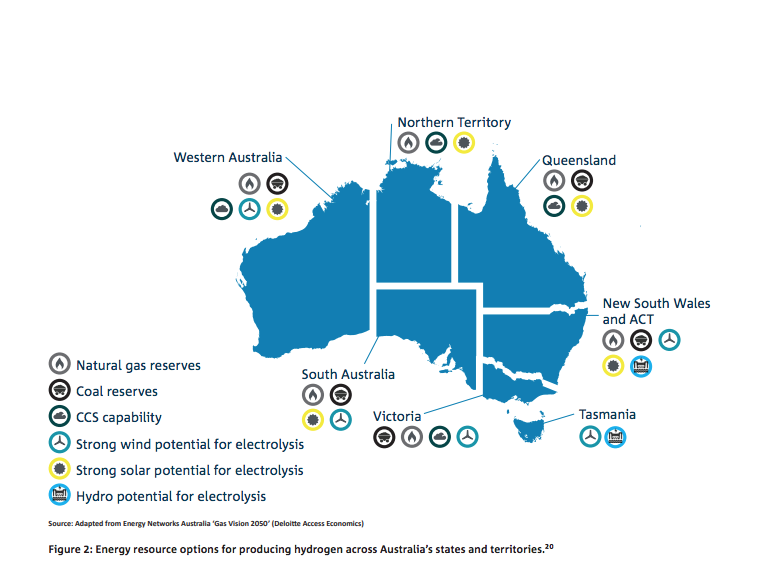Following hot on the heels of major reports highlighting Australia’s hydrogen export potential, the Australian Renewable Energy Agency (ARENA) has earmarked $22.1 million in funding to boost national research and development projects in the field.
The funding will be distributed among nine Australian universities and research organizations including: the Australian National University, Macquarie University, Monash University, Queensland University of Technology, RMIT University, The University of Melbourne, University of New South Wales, The University of Western Australia and the Commonwealth Scientific and Industrial Research Organization (CSIRO).
The first time ARENA announced a hydrogen R&D funding was in December, with a $20 million commitment into the hydrogen energy supply chain.
The Thursday funding announcement appears to be propelled by recent reports that showed low emissions hydrogen offers significant exporting potential for Australia.
The report by ACIL Allen Consulting commissioned by ARENA showed it could contribute $1.7 billion to the economy annually, while a separate report by the Australian government’s Chief Scientist, Dr Alan Finkel, delivered to the COAG Energy Council, described hydrogen as Australia’s next multibillion dollar export opportunity.
In addition, the National Hydrogen Roadmap released by Australia’s national science agency CSIRO, which is one of the funding recipients, showed the development of a hydrogen export industry represents a significant opportunity for Australia and a potential ‘game changer’ for the local industry and the broader energy sector due to associated increases in scale.
Now the research projects will look into the ways Australia can make this happen.
“Exporting renewable energy, such as by the use of hydrogen, involves developing and integrating emerging technologies. This funding will help bolster the research efforts of Australian scientists to drive innovation for what could become the next big export industry,“ says Darren Miller, recently appointed ARENA CEO.
According to ARENA, the early stage research projects cover a diverse range of renewable solutions, with at least one project from each point in the supply chain – production, hydrogen carrier and end use.
The projects include the development of a wide range of hydrogen-related technologies including concentrating solar thermal, electrolysis, biotechnology, carrier synthesis, thermochemical processes, fuel cell development and energy generation.
As confirmed in the earlier reports, interest in green hydrogen – the one produced from renewable sources for example via electrolysers powered by solar and wind – is rapidly growing.
“Hydrogen is poised to play a big role in the world’s low carbon economy. Already, Japan and South Korea have committed to becoming major import markets for renewable hydrogen but as yet there are no exporters,” Miller said.
This content is protected by copyright and may not be reused. If you want to cooperate with us and would like to reuse some of our content, please contact: editors@pv-magazine.com.




By submitting this form you agree to pv magazine using your data for the purposes of publishing your comment.
Your personal data will only be disclosed or otherwise transmitted to third parties for the purposes of spam filtering or if this is necessary for technical maintenance of the website. Any other transfer to third parties will not take place unless this is justified on the basis of applicable data protection regulations or if pv magazine is legally obliged to do so.
You may revoke this consent at any time with effect for the future, in which case your personal data will be deleted immediately. Otherwise, your data will be deleted if pv magazine has processed your request or the purpose of data storage is fulfilled.
Further information on data privacy can be found in our Data Protection Policy.